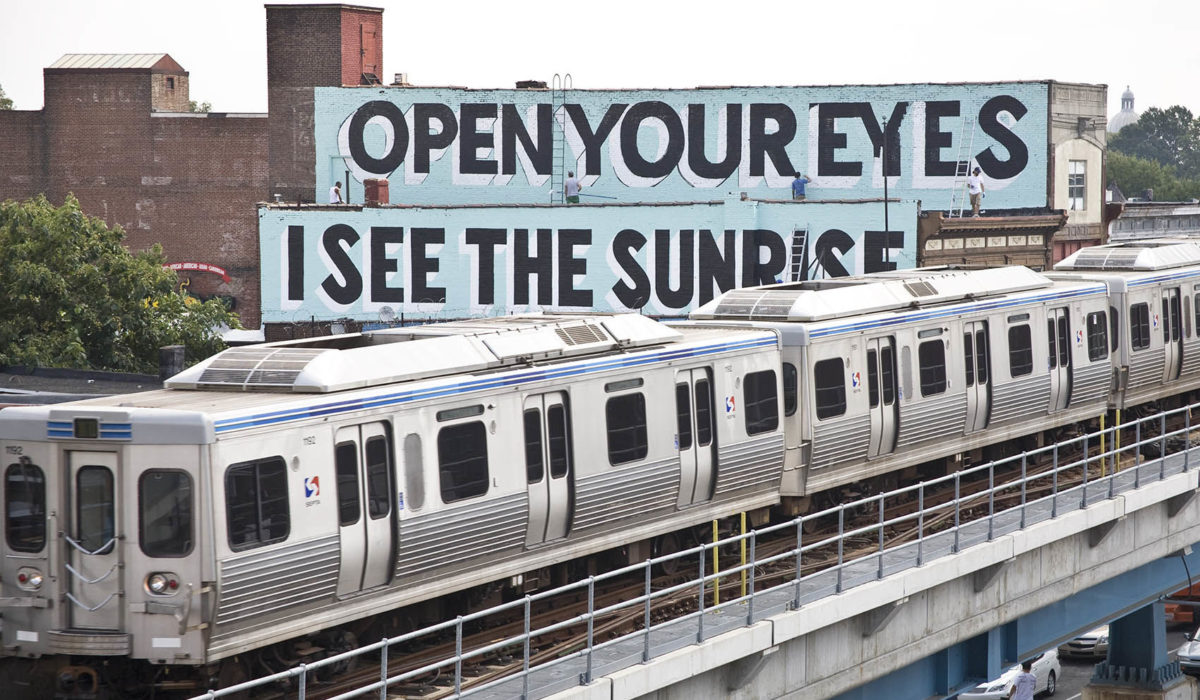The sound of construction outside her 11-year-old daughter’s bedroom window drew the curiosity of Yvonne Smith, but not her concern.
The lifelong Philadelphian had heard rumors that SEPTA was planning on building something on the empty lot.
“I didn’t believe they’d be building a power plant in a neighborhood,” Smith said.
Yvonne’s interest quickly turned to terror when she learned in mid-April that the almost completed facility would be SEPTA’s nearly 10,000-kilowatt gas-burning power plant. SEPTA had not notified residents that they were building a power plant that would exude tons of poisonous gas a year into their neighborhood. Worse yet, based on historical wind patterns, Yvonne discovered that the estimated 5.5 dozen tons of toxic pollution anticipated to be vented into the surrounding environment each year at the site was expected to blow in the direction of her daughter’s window.
On Tuesday, Yvonne joined dozens of residents and concerned citizens to pack a bleak municipal hearing room in what was likely a last-ditch effort to appeal the decision by the City of Philadelphia to allow SEPTA from opening their fossil-fuel-burning facility in Philadelphia’s Nicetown section. This hearing represented the ninth meeting that the Licenses and Inspections (L&I) Review Board designated for the appeal, an extraordinary number since they hold this meeting only about once a month.
The L&I Review Board appeared to many of the residents and concerned citizens not as a fair judge of their environmental concerns but instead an extension of SEPTA and the City of Philadelphia, which was defending its action to issue the permit to SEPTA. Several times, the L&I Review Board brought up objections to the citizen’s attorney before the City and SEPTA lawyers could raise their objections.
Outspent and out resourced, many in the crowd had become cynical. A review board designed to keep residents safe never seemed to rule in their favor and was also appointed by the same city government that joined forces with SEPTA to defend the gas plant.
They also believed that because SEPTA and the city’s lawyers had already drawn out the appeal process for over a year, the issue was a fait accompli: SEPTA had already built the power plant, and unlike the new police headquarters debacle, the city was not going to abandon another multi-million dollar facility. Some made the point that SEPTA had no reason to build the power plant because there were no issues with SEPTA’s current electricity source.
Others said the plant was the result of a political compromise by SEPTA to satisfy Republican state lawmakers and the fracking industry. SEPTA’s use of the fracked gas may allow the fracking companies to claim eminent domain on private and public lands for gas pipelines. Most rejected SEPTA’s claim that this facility would represent an improvement in SEPTA’s existing environmental footprint and questioned building a fossil-fuel burning facility over investing in renewable sources of clean energy, like wind and solar.
––
“The fact that SEPTA sees no problem adding a considerable amount of air pollution to a community that is over 90 percent African American, mainly low-income, and in which 1-in-3 children have been diagnosed with chronic inflammation of their lung airways, is particularly concerning.
––
But the concerns always came back to the detrimental health effects that come from burning gas in large quantities, which releases toxins into the air that include ultra fine particulate matter, volatile compounds and formaldehyde. These have been consistently linked to severe health problems and early death.
In terms of air quality, Nicetown is already overburdened with one of the most abysmal air qualities in the city, and among the worst in the country. One retired school nurse from a Nicetown school recounted children coming in from outside after recess “gasping for air.” She also remembered carrying one student to the school’s health center so her colleague could deliver another lifesaving breathing treatment to the child.
At the hearing, the resident’s lawyer made the closing argument that SEPTA did not reasonably evaluate the impact of the power plant on the pre-existing poor air quality, given the numerous pollution issues in the area. Also, she argued the city did not do its duty to protect the citizens of Philadelphia from harm when it gave SEPTA the permit to build the neighborhood facility.
The city’s lawyer, Dennis Yuen, then contended that the residents didn’t prove that the gas plant would be harmful, but rather were relying on “suspicions and speculation” that SEPTA’s plan to emit tons of pollution into the neighborhood would cause the public harm. He concluded that while “environmental degradation” would occur because of the gas plant, in the city’s viewpoint, this deterioration was OK.
SEPTA’s lawyer Andy Klein concluded the hearing by agreeing with Yuen and added that the worsening of the air quality in the neighborhood would not be “substantial” and that the fossil-fuel burning power plant would actually be a net gain for the environment.
In another “did he just say that” moment, Klein took issue with the depiction of the Nicetown power plant as environmental racism as outrageous. “In this day and age, it’s an unfortunate reality that people can easily throw around claims of racism… and sadly, it’s all too common for folks to do so if they don’t have a legitimate basis to oppose a project,” Klein said.
What he left out was that environmental racism is not only confined to the deliberate placement of toxin exposure near persons of color. As the New York Times noted, environmental racism is the result of segregation and low economic status that leaves a disproportionate number of persons of color living next to industrialized areas that subjects them to substantial pollution.
It is debatable whether SEPTA would have tried to get away putting Philadelphia’s soon-to-be third-largest gas burning generator anywhere else in the city. But the fact that SEPTA sees no problem adding a considerable amount of air pollution to a community that is over 90 percent African American, mainly low-income, and in which 1-in-3 children have been diagnosed with chronic inflammation of their lung airways, is particularly concerning.
Smith and others view the situation similar to the events in Flint, Michigan, where authorities ignored the complaints of residents and environmental groups and ended up poisoning the city and its predominantly poor black residents. “You don’t get the data until the [damage] is done,” Smith said. “The experiment is about to happen when they flip the switch. That’s when the experiment begins… It’s a disaster waiting to happen.”
Smith also told me that she fears for her and her daughter’s life. “I can’t sleep. I’m scared. My daughter is scared. She looks out her bedroom window and [the gas plant] is what she sees,” Smith said.
Since moving to the neighborhood over a decade ago, Smith now requires two daily medications to treat the severe allergies that she never had prior to the move. Her young daughter already takes inhaled steroids twice a day to control her persistent asthma in a neighborhood that already has one of the worst air qualities in the city.
“My question is ‘why that area? Why in that particular community?’” she asked, placing blame on those responsible for bringing the plant to the community, and those in power who did nothing to stop it. “They have no respect, no regard for people,” she added. “It’s like [we] are dispensable.”
The L&I Review Board has not yet decided on the fate of the permit to allow the power plant, but they are accepting public comment on the issue until May 30 at michelle.rand@phila.gov. While residents and advocates say they are not hopeful the permit will be revoked, they are hoping SEPTA will at least run the facility at limited times, take steps to minimize detrimental health effects from the power plant and continue to monitor activity at the site to prevent Nicetown from becoming the next Flint.
In the meantime, Smith has made plans to move her daughter’s bedroom and has no intention of going out on her porch, enjoying her deck or tending to her garden as she has for the last decade, fearful of what she and her family may be exposed to. Once she can retire, she plans to move out of her home and leave the city. “They don’t care about me here,” she said. “I’m just hoping to get away with the least damage.”
Tarik Sharif Khan is a family nurse practitioner at Abbottsford Falls Health Center in Nicetown. He is also an associate fellow at the Leonard Davis Institute, and a PhD candidate at the University of Pennsylvania.
TWITTER: @INCLUSIONPHILLY




